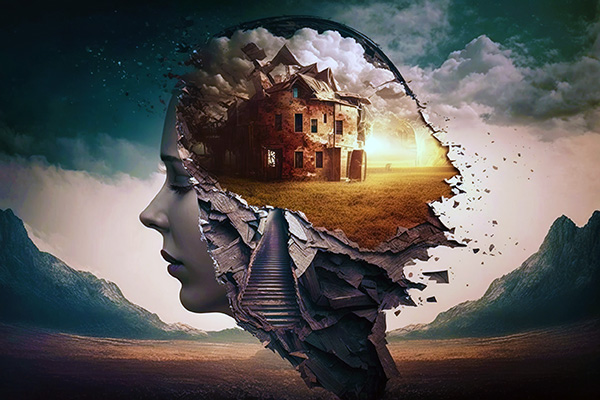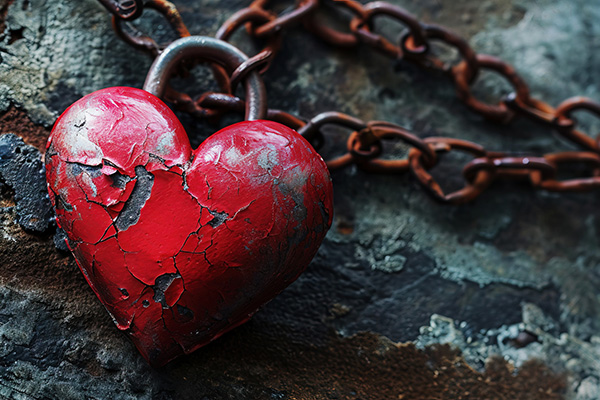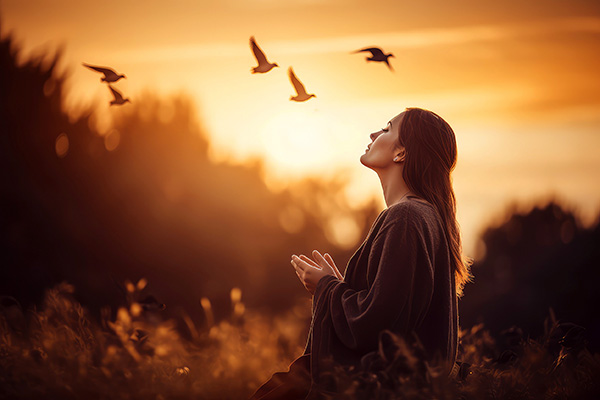regrets
Thorns Are Only There To Protect The Rose
 Each time we turn to unnecessary conflict, things turn into chaos. It stirs up the aura around each person involved. The ripples of anger and hurt affects everyone involved.
Each time we turn to unnecessary conflict, things turn into chaos. It stirs up the aura around each person involved. The ripples of anger and hurt affects everyone involved.
This doesn’t mean we can’t ever stand up for ourselves, or disagree. In fact, statistics prove that couples who never argue most often don’t last in their relationships.
A good storm now and then can clear up things and allow us opportunity to express the things we have been suppressing.
But often we hold it in for too long, and then it blows up. When this happens, the drama is often worse than it needed to be. We say things we later regret. We are even surprised by some of the things we say when we get this upset! Where did that come from?
Then, as time goes on, we want to make amends. Yet, those words caused a hurt that never really leaves. Sometimes an apology is no longer enough.
I know that it is hard to do, but it is mostly for the best not to stir the pot when it is already too late. The wisest way to handle issues is to bring them up early on. Talk and work them out before they blow up.
Love is like a rose. Roses are so beautiful, with their sweet smell, the velvet petals, brilliant colors, and heady scent. It overwhelms the senses.
Give Yourself Permission To Be Happy!
 My life would be great if only… I had more money… he would come back to me.. I can find a better job… I can reach my goal weight.
My life would be great if only… I had more money… he would come back to me.. I can find a better job… I can reach my goal weight.
How many times have you heard such statements? How many times have you told yourself something like this? Is it truly the answer to lasting happiness? What if there was a way to train your brain to accept life and live your best in the meantime?
As a hypnotherapist, my experience has been that when any suggestion is put into the mind, the subconscious will accept the information, whether it is true or false.
Whatever a person chooses to tell themselves enough times becomes their truth. The information becomes a habit to believe the suggestion. Some habits are good and some not so good. A bad habit needs to be replaced with a good one.
Why not take all the positive steps needed to live your best in the meantime… while waiting for the wishes to come true. There are many ways to retrain the brain, just as there are many ways to travel to a destination.
Some people like the fastest route, while other like the scenic route, in order to see the sights along the way. It doesn’t really matter what route you take. What does matter is that you truly have the belief that you can reach the destination, and allow yourself to enjoy the ride in the meantime.
Miracles Happen When We Release Attachment
 We tend to hold on to things and people that no longer serve us. Fear keeps us attached, as does the comfort of the familiar.
We tend to hold on to things and people that no longer serve us. Fear keeps us attached, as does the comfort of the familiar.
The unknown can feel unsettling, even when we know deep down that letting go is the best way forward. Our attachments, whether to relationships, material possessions or past experiences, often come from emotional bonds that make letting go feel impossible.
Some people cling to relationships, even when they have been treated badly, because they do not believe they are worthy of anything better. Their self-worth is so wrapped up in the presence of the other person that the thought of leaving feels like losing a part of themselves.
Others cling to material possessions not because they need them, but because these things give them a false sense of security or define their identity in some way. The more we hold on to something, the more our energy becomes wrapped around it, creating an invisible barrier that prevents new blessings from entering our lives.
This was a hard lesson for me to learn and overcome. Years ago, I put my father’s house on the market. It had been on the market for over a year and not a single offer had come in. At first I couldn’t understand why. The house was structurally sound, in a good location and fairly priced. But despite my best efforts, no buyers came forward.
Later I realised that my own energy of resistance was preventing the sale. I was not emotionally or spiritually ready to let go. My attachment – rooted in resentment, anger and unresolved emotions – created an energetic blockage that kept potential buyers away.
Find Your Peace In The Present Moment
 A theme that comes up frequently in psychic readings is how people inadvertently choose to live in the past, finding comfort in nostalgia or reliving painful memories that keep them tied to an earlier time. The past is often romanticized — a seemingly simpler, happier place, free from the burdens of the present.
A theme that comes up frequently in psychic readings is how people inadvertently choose to live in the past, finding comfort in nostalgia or reliving painful memories that keep them tied to an earlier time. The past is often romanticized — a seemingly simpler, happier place, free from the burdens of the present.
For those who had a happy and idyllic childhood, the past may seem like a golden era. They fondly recall carefree days filled with laughter, unconditional love, and the security of knowing that someone else was responsible for making the big decisions.
These people long for the innocence of childhood, the guidance of loving parents, the support of trusted mentors, and simpler times. It can be a source of comfort, but it can also prevent them from fully embracing the possibilities of the present.
For others, the past is a dark and painful landscape filled with trauma, regret, or missed opportunities.
Some people carry deep emotional wounds from their past. Perhaps they grew up in an environment of neglect, conflict, or abuse. Instead of a safe and nurturing childhood, they experienced hardship, pain, or betrayal.
Bad memories, deeply etched in the soul, can feel like an unshakable burden. Those who have suffered often relive their trauma, carrying resentment and anger toward those who wronged them. For these people, the past is not a place of comfort, but a source of suffering that continues to affect their daily lives. Continue reading
What To Do When A Lost Love Lingers
 Many of the readings I do are about love and relationships, and a good percentage of them are about past relationships that continue to linger in the hearts and minds of some callers.
Many of the readings I do are about love and relationships, and a good percentage of them are about past relationships that continue to linger in the hearts and minds of some callers.
For some people there are often constant, even obsessive thoughts about a former partner, a longing for a second chance, or bitterness and regret for time and energy that now seems wasted. The longer and more intense the relationship, the more battle scars and wounds there often are.
If it was a soulmate or twinflame connection, the aftermath can be especially devastating. The relationship has ended and the connection has been severed in this lifetime. This can be very painful. You know you gave it your all. You hung in there for years, or you made heroic efforts to ensure the survival of the relationship, but it did not work out as you had hoped.
If you are highly sensitive and intuitively aware, you may still be picking up the energy of your former partner, which can be very painful, disturbing and disruptive. Unresolved energetic connections can keep you stuck in a repetitive cycle of repeating the same pattern with that person, or put you on hold, unable to move forward in peace and confidence.
I am often asked, “Is it really over?” or “Does he still have feelings for me?” Of course, the answer depends on the unique circumstances.
Forgiveness Is Choosing To Take Back Your Power
 Ah, forgiveness! Such a misunderstood concept. For many people, forgiveness, as noble as it may sound, is very difficult, even impossible.
Ah, forgiveness! Such a misunderstood concept. For many people, forgiveness, as noble as it may sound, is very difficult, even impossible.
Sometimes certain wrongs are so grave to us that the offender doesn’t deserve forgiveness in our eyes. There is also a misconception that forgiving someone is tantamount to excusing or justifying their terrible actions. But forgiveness is not about absolving someone of responsibility. Instead, it is a powerful, personal act of release and healing.
When we forgive someone, whether they’ve hurt us emotionally, betrayed our trust, or even caused us physical harm, we’re not letting them off the hook.
We are not condoning their actions or giving them permission to repeat those offenses. Rather, we are choosing to free ourselves from the weight of resentment, pain, and bitterness that binds us to them and their past actions.
Forgiveness is a gift we give ourselves. It allows us to move forward without the burden of past grievances and with an open heart, free of resentment.
By forgiving, we determine for ourselves that the transgressor’s actions and the memory of their misdeeds will no longer hold us hostage or march with us into the future.
While we may not be responsible for what happened to us in the past, we are responsible for how we choose to carry the memory of it into the future. This is the power of forgiveness: it gives us the strength to embrace our present reality with clarity, compassion, and freedom. It also transforms our future, for it is ultimately a karmic choice that will shape our destiny in ways we will only understand much later in this life and beyond.
Praying For Your Departed Loved Ones
 A client recently asked me if there is any benefit to praying for a loved one who has passed away? Does it make a difference in their transition to their new plane of existence? Can it somehow assist them in their continued existence in the afterlife? Can they even hear us?
A client recently asked me if there is any benefit to praying for a loved one who has passed away? Does it make a difference in their transition to their new plane of existence? Can it somehow assist them in their continued existence in the afterlife? Can they even hear us?
We can absolutely connect with the spirits of those who have passed on, although it may sometimes feelas if they cannot hear us. Whether we are praying for them, talking to them, or simply grieving for them, we are connecting with them on a spiritual level and they are hearing us.
In fact, praying for our deceased loved ones has a very positive effect on their soul journey and they deeply appreciate it.
Some people believe that when we die, we go to some blissful realm of perfect existence where all our problems and karmic debts are instantly resolved, or left behind on the earth plane for others to deal with or pick up the pieces. Nothing could be further from the truth.
Most of us will pass away someday with some unresolved issues, negative feelings, resentments, grudges, or regrets that we will need to continue to work on in the afterlife. Of course, some of us will have much more to work on than others. Just because we leave this physical world does not mean that we are free of all our responsibilities and no longer accountable for anything or anyone.
It is therefore helpful to send our prayers to departed loved ones to help them with whatever spiritual or karmic “baggage” they may be taking along with them on their journey to the other side. Although they may leave behind symptoms of illness or financial debt, for example, their spiritual ailments will still need to be healed.